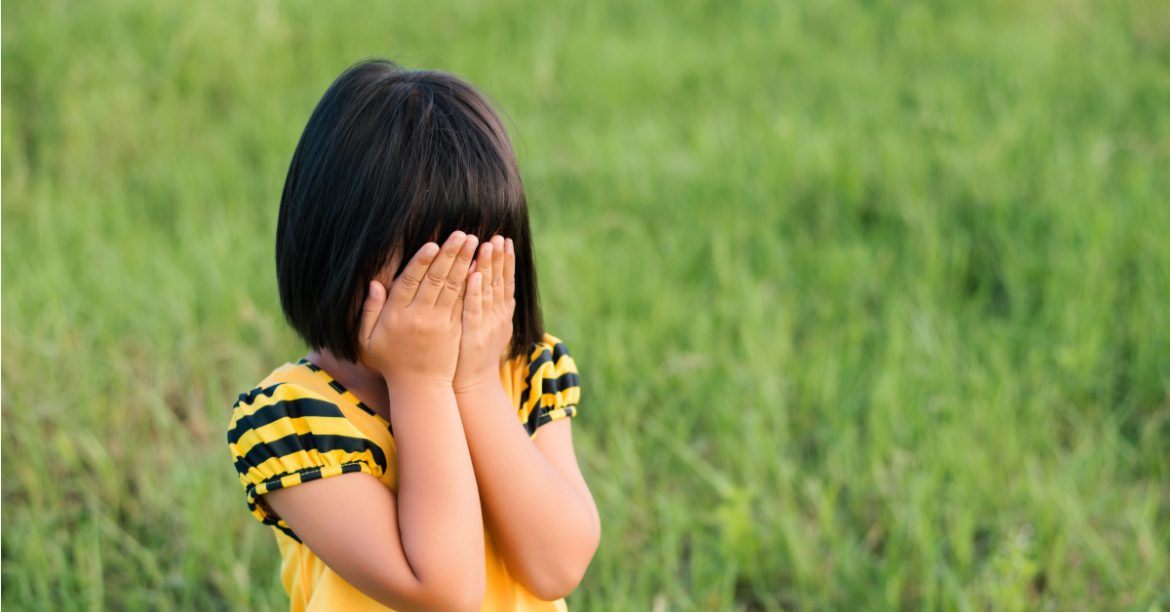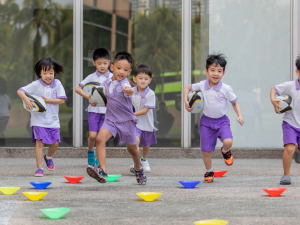
How to prepare my child for school in order to prevent separation anxiety
Mummy, don’t go!
Have you ever pretended to say goodbye to your toddler and acted as if you were leaving them behind? And we get the classic response – the teary & confused toddler who will start bawling. All is well when you go back in and swoop them back into your arms.
Prepare yourself though, because the mollycoddling will have to stop on your toddler’s first day of school. And be warned, your toddler won’t be the only one who will be overcome with emotions.
We’ll go through this step-by-step to understand why this whole separation anxiety happens. Problems with separation anxiety are more typical in younger children than adolescents. It’s usually prevalent between 14 and 18 months, and typically the anxiety decreases throughout early childhood.
According to a study on anxiety in children and adolescents, approximately 3-4% of children develop anxiety disorder. Anxiety comes from the fear of the unknown. And to a little student who is just about to embark on a new journey, this is a whole world of the unknown. Furthermore, this will be the first time they will be away from mummy and daddy for more than a few minutes.
We know how heart-wrenching it is to see tears streaming down your child’s face as they repeatedly say “Mummy! Daddy! Don’t go!” and you still have to take your leave. But it’s okay, let’s work this out.
Step 1: Attend orientation sessions.
Enquire if your child’s school will be hosting an introduction or an orientation session for incoming students. This will give your child an opportunity to be familiar with the route to the school, the classroom, the teachers and also their new friends! You get to meet the other parents too, who will be going through the same journey as you. #ParentSupportGroup!
Step 2: Prep your child on what to expect.
Children will be less fearful when they know what to expect. Engage your child in school-like activities such as reading books and drawing. Talk to them about what they will be doing in school, the teachers who will be caring for them and the new friends that they will make.
As a parent, you should also acknowledge your own level of separation anxiety. But do so privately. Young children are very perceptive and they will be able to sense how you feel. So model a sense of calm and confidence so that your child will also feel they will do okay without you by their side for a few hours. If he or she isn’t prone to clinging or crying when you’re away, don’t plant worry seeds in them. The key is to tell them what they need to know without overdoing it.
Step 3: Plan a routine.
Children are at their best when they get plenty of rest, eat a healthy breakfast and most importantly, when they do not feel rushed. If you’re packing some snacks for your child, it’s best to do so the previous night to save time in the morning. Have their shoes, socks and bags
waiting by the door at night. Wake up earlier to factor in extra time to get the momentum going in the morning. Oh, and don’t forget to start heading to bed early! Just like the nursery rhyme “Early to bed, Early to rise. Makes a man, healthy, wealthy and wise.”
If your child starts to be clingy and needs to be with you all the time, what you can do is to prepare a familiar item for them to bring to school like a small handkerchief, that can stimulate both present and primitive memory via the sense of smell. According to pediatrician Thomas Seman, “An item that smells like mom will help the child feel less anxious.”.
Step 4: Time to say goodbye for now.
Start small and start slow. Don’t go cold turkey on them! If they’ve never been away from you for more than a few minutes, it may be a good idea to invite Grandma or a sitter over. Start by running to the supermarket and leave your child and Grandma together. Gradually increase the length of time that you will be away. This will help them to transition into school better when it’s time to say goodbye.
Never, ever sneak out of the room without saying goodbye to your child. No matter how tempting it is. When they realise that you’ve disappeared, this can cause more stress for your child later in the day. Watch your body language when you bid them adieu. It’s okay to feel sad but you want and need your child to feel safe and secure in their new environment.
Create a special goodbye ritual so that they know once it’s over, you would have to leave for work. And don’t linger after you’ve said goodbye. It will only prolong the anxious feeling in your child which will make it even harder to leave. It’s a short term pain for a long term gain.
Step 5: Celebrate their victory.
Don’t be late when you pick your little student up from school. Be there, smiling from ear-to-ear, ready to tell them how proud you are of them for getting through the day. Ask them how was school, what did they do and what they will be doing in school tomorrow. Make it into a little competition. Give them a sticker for every day that they go to school without crying and if they can accumulate 5 stickers, they’ll get a reward.
This is a brand new journey for them and also for you. Don’t take it too hard if they regress. For example, a potty-trained toddler may suddenly wet himself. It’s totally alright because they do not have the same coping mechanisms as adults do. They are still learning and they will take some time to get used to the change. Eventually, they, you, we, all of us, will be fine.







